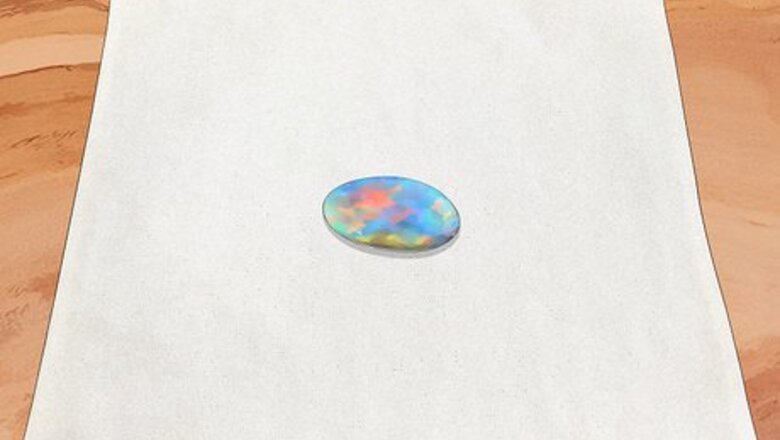
views
Cleaning Solid Opals
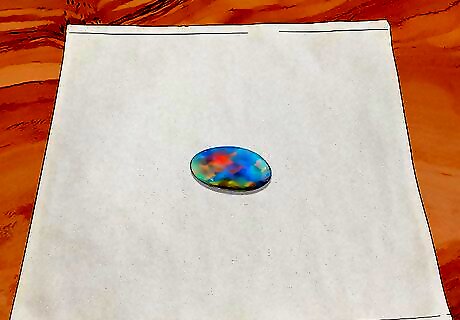
Lay your solid opals out onto a clean, dry cloth. Before you start the cleaning process, set your opals out onto a cushioned surface. Though solid opals are a little more durable than doublet or triplet opals, they are still prone to scratches and scuffs. Avoid any damage by setting them on a cushy cloth or towel.
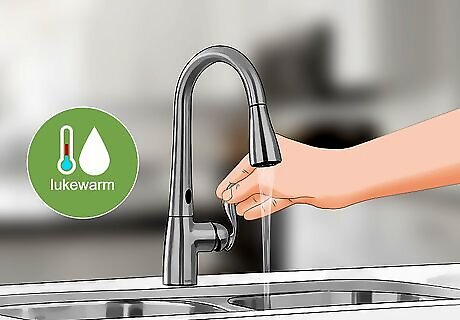
Run some warm water. Turn on the tap to slightly above lukewarm. Opals contain about 5-6% water so if the water is too hot or too cold, you risk cracking them.
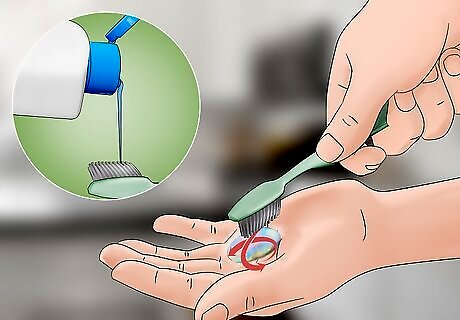
Scrub the opal with some mild soap. Add a few drops of mild soap to a damp, soft-bristled toothbrush. Take the opal in your hand and gently scrub it with the toothbrush, making small, circular motions on the surface of the opal. Be sure to use a natural, gentle soap that doesn’t contain harsh chemicals and is fragrance-free. You can find a soap like this at a health food store or the "natural" section of any supermarket.
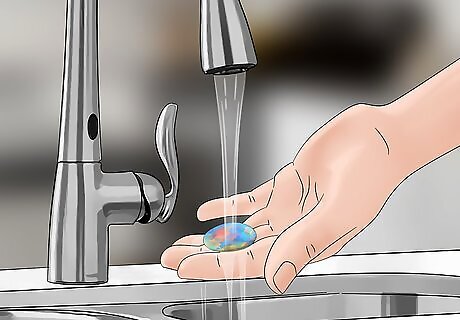
Rinse the opal. Place your solid opal under the warm running water for a few seconds or until the water runs clear. Make sure that there is no soapy residue left on its surface.
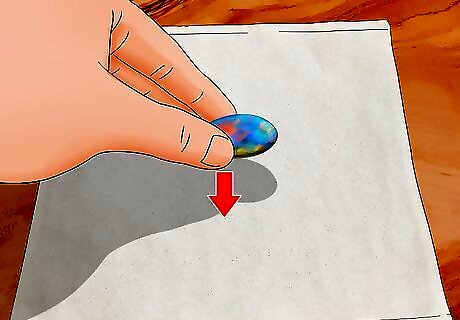
Leave your opals out to dry. The easiest way to get your solid opals dry after a good cleaning is to leave them out on a soft, clean cloth. After a few hours, they’ll be shiny, bright and clean as a whistle. Do not be tempted to blow your opals dry with a hair dryer as the extreme temperature might crack the surface.
Cleaning Doublet and Triplet Opals
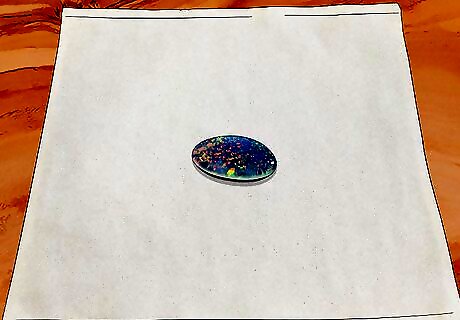
Lay out your opals onto a soft cloth. Doublet and triplet opals are incredibly delicate stones, landing between a 5.5 and a 6.0 out of 10 on the Mohs Hardness Scale. These stones need to be handled with the utmost care. Set your your opals out on a soft cloth to prevent any scratching.
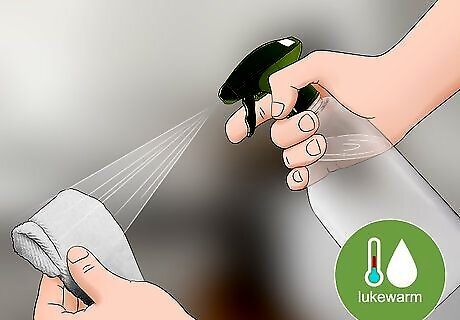
Dampen a soft, clean cloth. Fill a spray bottle with lukewarm water and spritz a cloth with lukewarm water. You want the cloth to feel lightly dampened, not soaked.
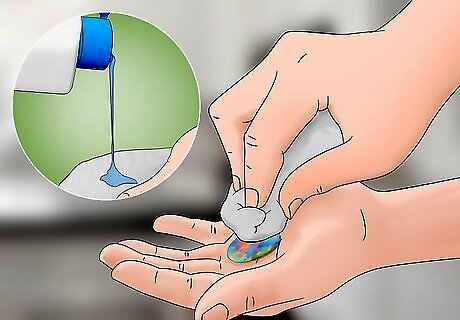
Wipe the surface of the opal with mild soap. Add a few drops of mild soap to the dampened cloth. Gently wipe the surface of the opal using a light, buffing motion. Be sure to use a natural, gentle soap that doesn’t contain harsh chemicals and is fragrance-free. Unlike solid opals, a doublet or triplet opal should never be submerged in water.
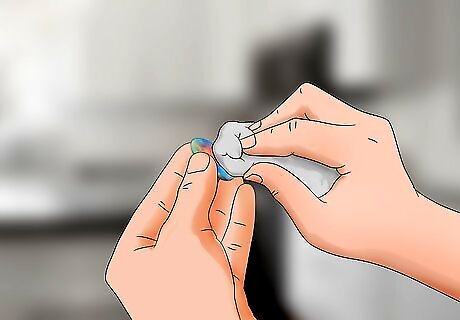
Wipe the surface gently with a damp cloth that doesn’t contain any soap. Spritz a new cloth with water and thoroughly (yet gently) wipe off the soap. Make sure to get all of the soapy residue off.
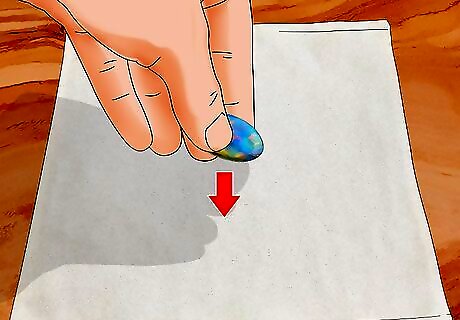
Let your opals air-dry. Much like solid opals, doublet and triplet opals do best when you just let them dry naturally. Set them onto a cloth and keep them in a safe place while they dry off. It's worth noting that some opals can change color when they get wet. Don't worry...your opal isn't ruined. It will go back to its original hue once it's dry.
Storing Your Opals
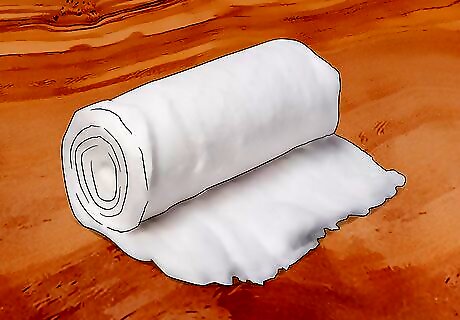
Buy a bag of cotton wool. Raw cotton wool or cotton balls can be purchased at a drug or grocery store. Any form will do as long as it’s fluffy and absorbent.
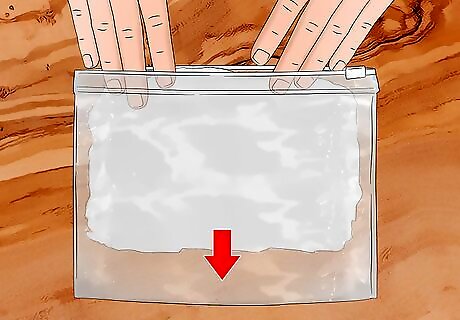
Stuff a zippered plastic bag with the cotton wool. Cram as much of that cotton wool into the plastic bag as possible while still being able to zip it up. The goal is to make a "pillow" of sorts.
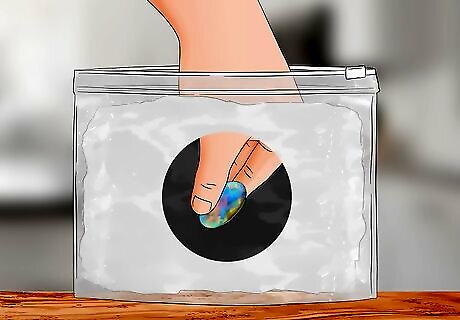
Put your opals in the bag. Place your opals in the middle of the bag so they’re being “hugged” by the cotton wool. Squeeze the bag slightly to make sure your opals are in the middle of your cotton wool "pillow."
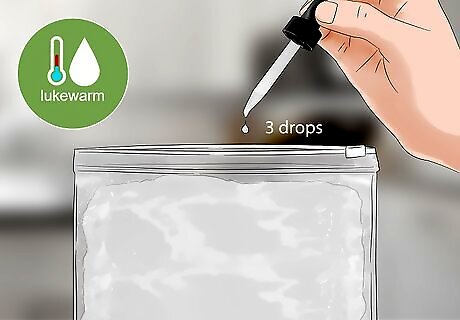
Add in a few drops of water. This goes for all three types. Using an eye dropper or even your finger, drop about 3 drops of lukewarm water onto the cotton wool. This addition prevents water from coming out of the stone when stored for long periods. Not to worry, the water will not “absorb into the stone”. It’s meant to create a more humid environment so that the opal can stay balanced chemically.
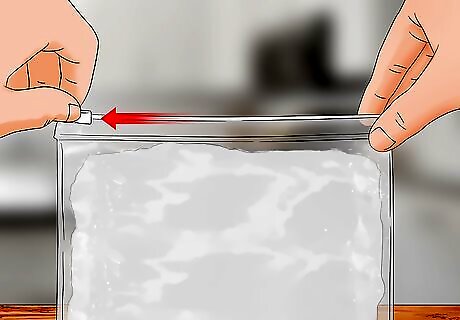
Seal the bag and store in a neutral environment. It’s best to store opals in a room-temperature, dark environment like a bedroom closet or a drawer. You might also consider storing them in a temperature controlled jewelry safe. Keep you opals away from open windows, fireplaces and any sort of extreme temperature.



















Comments
0 comment